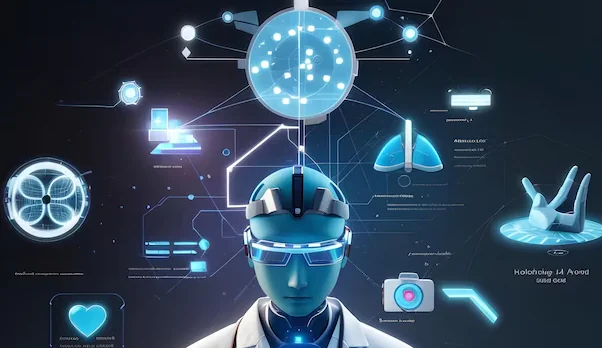
Global Impact: AI Improving Healthcare Access: Explores the broader, global impact of AI in healthcare.
In 2024, AI in healthcare is making significant progress, especially in diagnostics and personalized treatments. AI systems can now detect early signs of diseases like cancer, diabetes, and cardiovascular conditions with high precision. This leads to more effective treatments and less invasive procedures.
A study from the National Institutes of Health (NIH) found that AI tools can analyze medical images faster than human doctors. This improves diagnostic speed and accuracy. As a result, doctors can make quicker decisions, leading to faster treatments and better patient outcomes.
If you’re curious about how AI is reshaping medical research, check out our detailed post on AI-powered medical breakthroughs. For those interested in AI in personalized medicine, we recommend reading our guide on AI and personalized treatments. AI allows healthcare professionals to customize treatments based on a patient’s genetic makeup and medical history, which increases the chances of success.
AI is also improving patient engagement and care management. A report from the World Health Organization (WHO) explains how AI is integrated into global health initiatives. AI is especially useful in underserved regions, where it improves healthcare accessibility. By automating routine tasks and facilitating communication, AI helps healthcare professionals provide timely care.
By integrating cutting-edge AI technologies, healthcare providers can offer more accurate, faster, and cost-effective care. Learn more about how AI is shaping the future of healthcare on our AI in healthcare blog. As AI evolves, we expect even more breakthroughs to transform the medical field.
Keywords: AI in healthcare, stock market volatility, cryptocurrency regulations, sustainable investing, Federal Reserve, Bitcoin, Ethereum, Tesla, Apple





